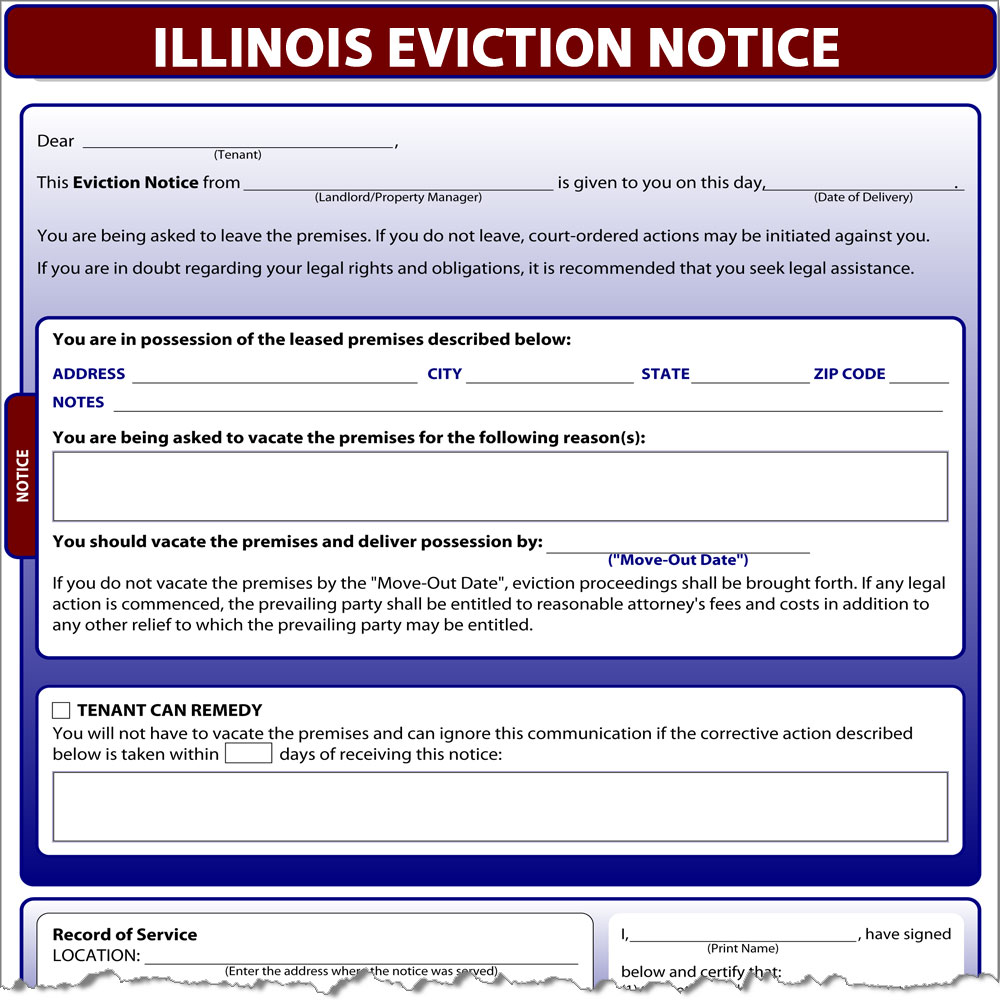From Late Rent to Eviction: When Does the Procedure Kick Off?
From Late Rent to Eviction: When Does the Procedure Kick Off?
Blog Article
The thought of being evicted from your house can be terrifying. It's a predicament many people hope to never end up in. Nevertheless, if you're experiencing hard instances, eviction may possibly turn into a reality. Knowing the timeline of an eviction process will help ease a number of the strain and permit greater planning. In this short article, we'll explore the fundamentals of eviction law and answer the question, illinois eviction notice?

The first thing to understand is that the procedure of eviction on average begins with the tenant declining to pay for lease on time. Depending on the specific lease contract and state regulations, there might be a grace period that allows for payment without penalty. However, when that screen closes, the landlord usually takes legitimate action. That is frequently referred to as a Pay or Leave notice. Primarily, the landlord is showing the tenant to often spend the lease owed or vacate the property. That observe generally gives the tenant a particular amount of time, which ranges by state, to comply.
If the tenant does not pay or keep within the designated time, the landlord will then file a formal criticism with the court. This file notifies the tenant of the eviction lawsuit and models a date for a trial or hearing. The precise timeframe between the complaint filing and the reading varies by state, but it's typically several weeks. During this time, the tenant still has the opportunity to pay for the lease owed and prevent eviction.
Accepting the tenant does not spend or arrive at an contract with the landlord, the trial or hearing takes place. Both events are able to provide evidence and testimony. If the decide principles in support of the landlord, a final judgment of possession will undoubtedly be issued. What this means is the tenant includes a collection period of time to vacate the property or be forcibly eliminated by legislation enforcement.
The length of time between the final judgment and the specific eviction differs by state and circumstance. For example, if the tenant appeals the eviction, the procedure will undoubtedly be delayed significantly. But, accepting you will find no further legitimate actions taken, the eviction process usually takes place when 24-72 hours after the ultimate judgment.
It's important to see that there are legal techniques that must be used throughout the eviction process. Landlords cannot only modify the locks or artificially remove tenants on their own. Doing this may result in legitimate trouble and further complications. It's recommended for both events to seek appropriate counsel to make certain proper procedures are now being followed.

Conclusion:
Experiencing eviction can feel overwhelming, but understanding the eviction method may help reduce some of the stress. Knowing when the eviction method begins and what to expect along the way is an essential first faltering step in navigating the situation. While each state has its own laws regarding eviction, you will find characteristics that may be expected. By working together with the landlord and seeking legitimate counsel, tenants may assure that they're handled reasonably and have the perfect outcome.
Report this page